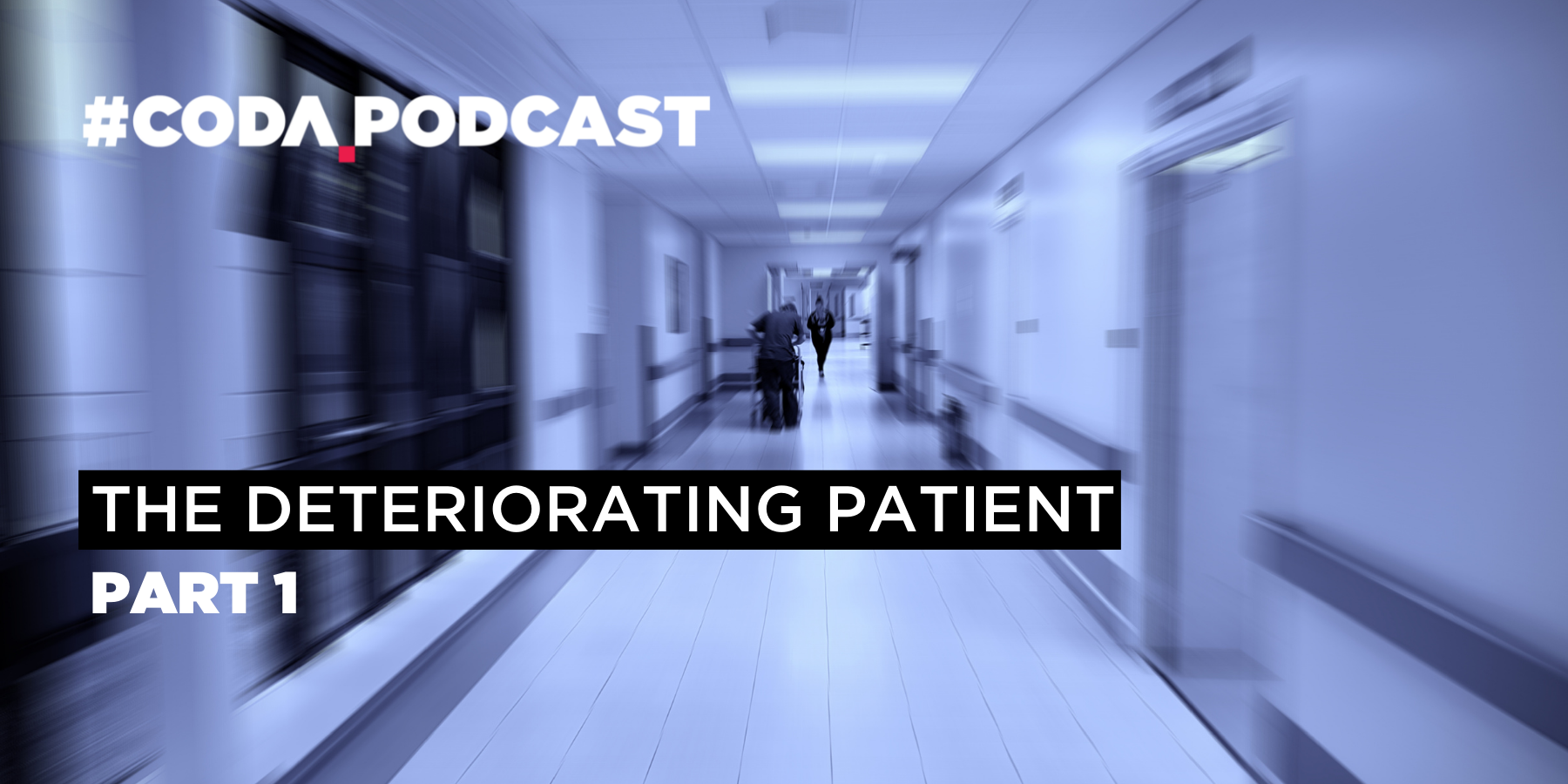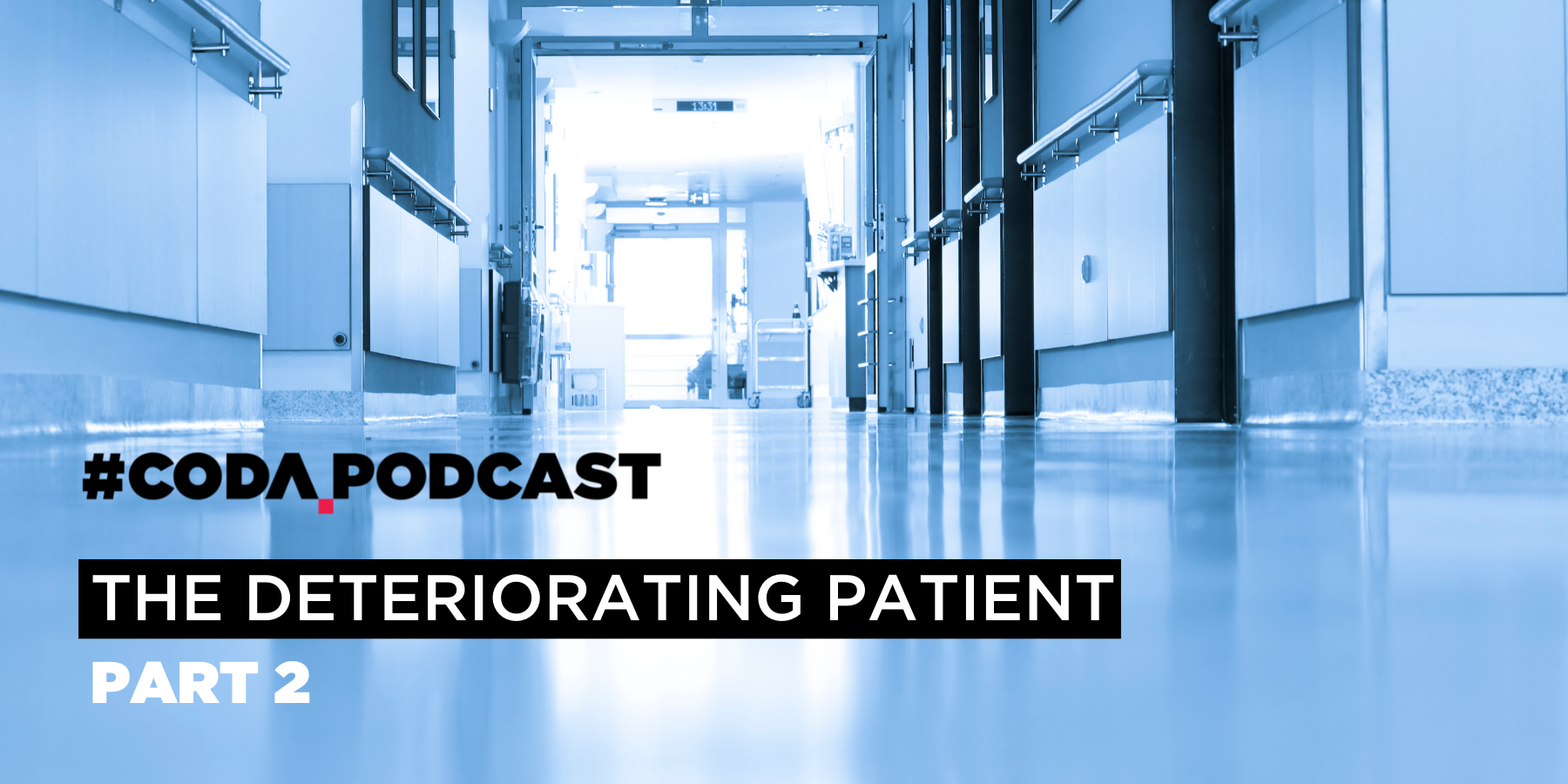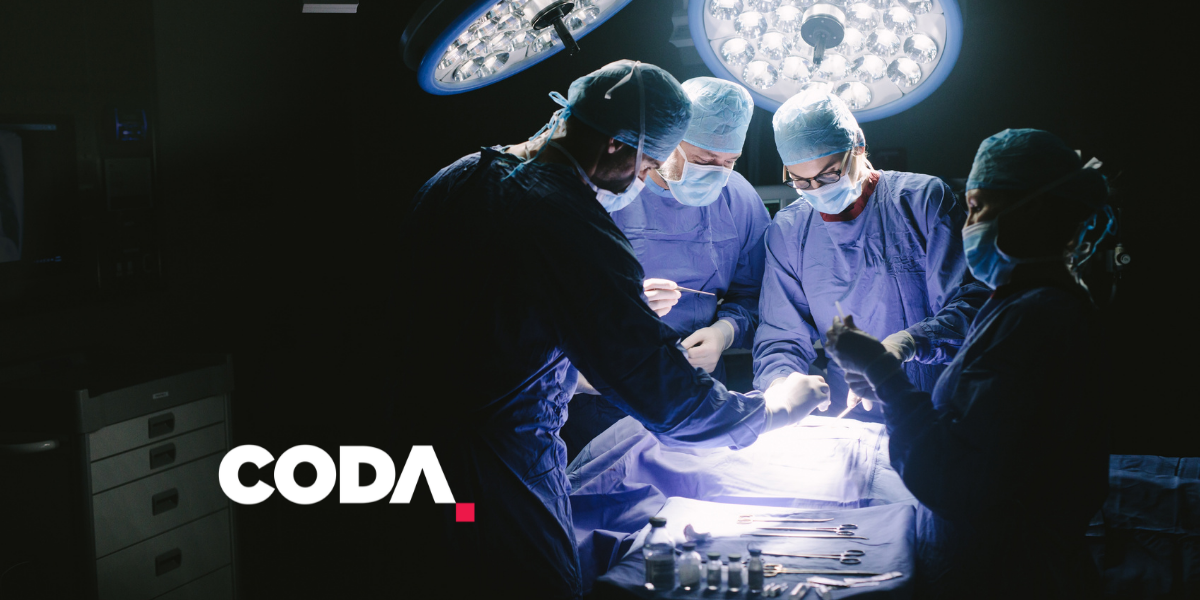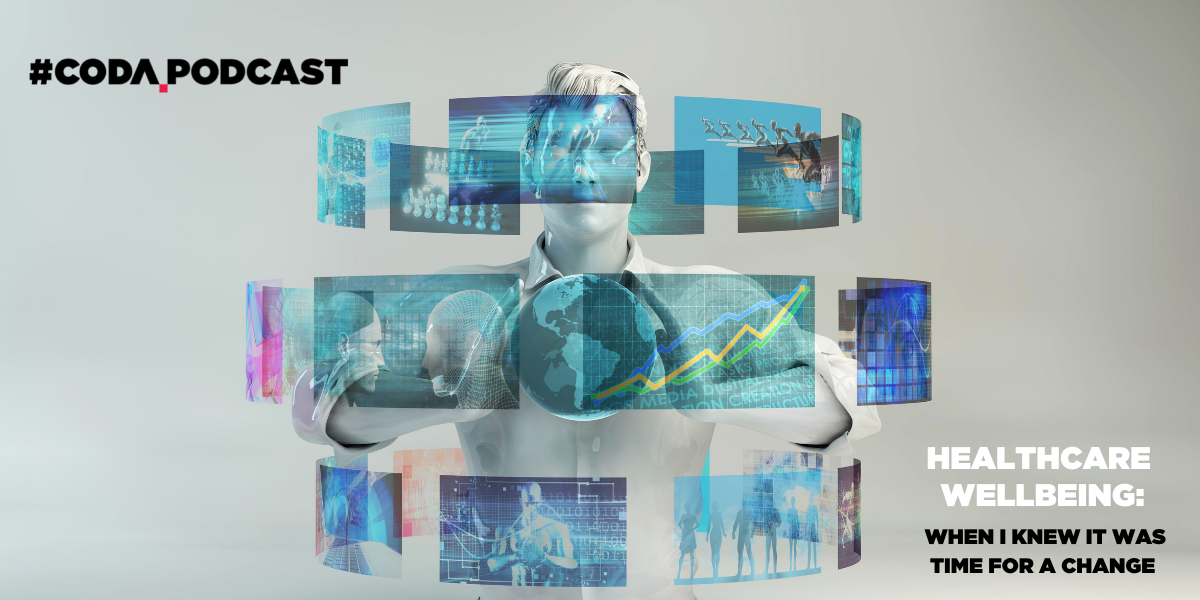The Deteriorating Patient: Part 1
In this episode of the Coda podcast, Coda co-founder Roger Harris is joined by Sydney-based Chris Anderson and Lausanne-based Frederic Michard. The panel explore precisely what a deteriorating patient is, how big a problem they are and exactly why we should care.
Hosted by Roger Harris, guest Frederic Michard is a Critical Care MD, PhD, based in Lausanne, Switzerland, who trained in Paris University Hospitals and in Boston and is well known for his research work and publications. Chris Anderson is a fellow intensive care specialist, also based in Sydney. Roger speaks to Frederic and Chris about why many patients who are admitted to hospital for surgery end up staying due to complications. This has significant implications on both hospitals and nurses as a whole.
Also touched upon within the podcast is failure to rescue – or FTR – which is the failure or delay in recognising and responding to a hospitalised patient experiencing complications from a disease process or medical intervention. They discuss the two main components – the failure to detect deterioration at an early stage and the failure to react appropriately and in a timely manner and the impact this can have on patients.
Addressing startling statistics –
which suggest an alarming number of patients will die within 30 days of surgery – the three intensive care specialists pose the question: how do we better detect and monitor deteriorating patients? They discuss everything from the unreliable recordings of respiratory rates to other inaccuracies that can impact both the treatment and detection of deteriorating patients, to the effect older patients on hospital wards are having on the complexity of cases and conclude that there is absolutely room for improvement regarding how patients are monitored.
Reflecting on the influence that Covid has had on hospitals, the three experts note that many health care systems are under strain in the post-pandemic world, and that the subsequent nurse shortages are a huge issue, particularly on hospital wards. They conclude that this too, is a reason to upgrade the way in which our patients are monitored.
For more like this, head to our podcast page. #CodaPodcast
This podcast is sponsored by GE Healthcare.

About GE Healthcare
Did you know that:
Adverse events in general wards are not uncommon, and many are preventable? Mortality after surgery is 1,000x higher than intraoperative mortality.1
In the ward, vital signs are often abnormal or trending toward abnormal hours before cardiac arrest or ICU transfer. However, clinicians may only suddenly notice because spot-checks are usually done on a 4-6-hour interval? 2
Abnormal respiratory rate (RR) has been shown to be an important predictor of serious events, such as cardiac arrest and admission to an ICU?3 Patient safety and ensuring optimal care for recovering patients are priorities for every hospital. A way to do this is to keep patients moving and to continuously monitor key vital signs, including RR. While this sounds easy, finding a simple and reliable way to support monitoring patients in the general ward setting is challenging.
Learn more about a new, innovative solution that is meeting this challenge:
https://www.gehealthcare.com.au/products/portrait-mobile
References
Sessler, et al., Beyond Failure to rescue: the time has come for continuous monitoring. British Journal ofAnesthesia 2019, 122(3): 304-306.
Michard, et al., Protecting ward patients. ICU Management & Practice; Vol 19 – Issue 1 (2019).
Cretikos, et al., Respiratory rate: the neglected vital sign. MJA; Vol 188 No. 11, 657-659 (2008).
Roger Harris
Roger Harris is a senior staff specialist in the intensive care unit at the Royal North Shore hospital and the Sydney Adventist hospital (SAN). He is dual qualified in Emergency Medicine and Intensive Care. Roger is one of the co-founders of SMACC and Coda. He is passionate about education, his five children and especially his beautiful wife Georgie.
Frederic Michard
Frederic Michard is a Critical Care MD, PhD, based in Lausanne, Switzerland.
He trained in Paris University Hospitals and in Boston (Anesthesia & Critical Care @ Mass General Hospital-Harvard Medical School).
He is known for his research work and publications (>10,000 citations on Google scholar) on pulse pressure variation (PPV) and fluid responsiveness, and more recently on digital innovations and wearable sensors.





